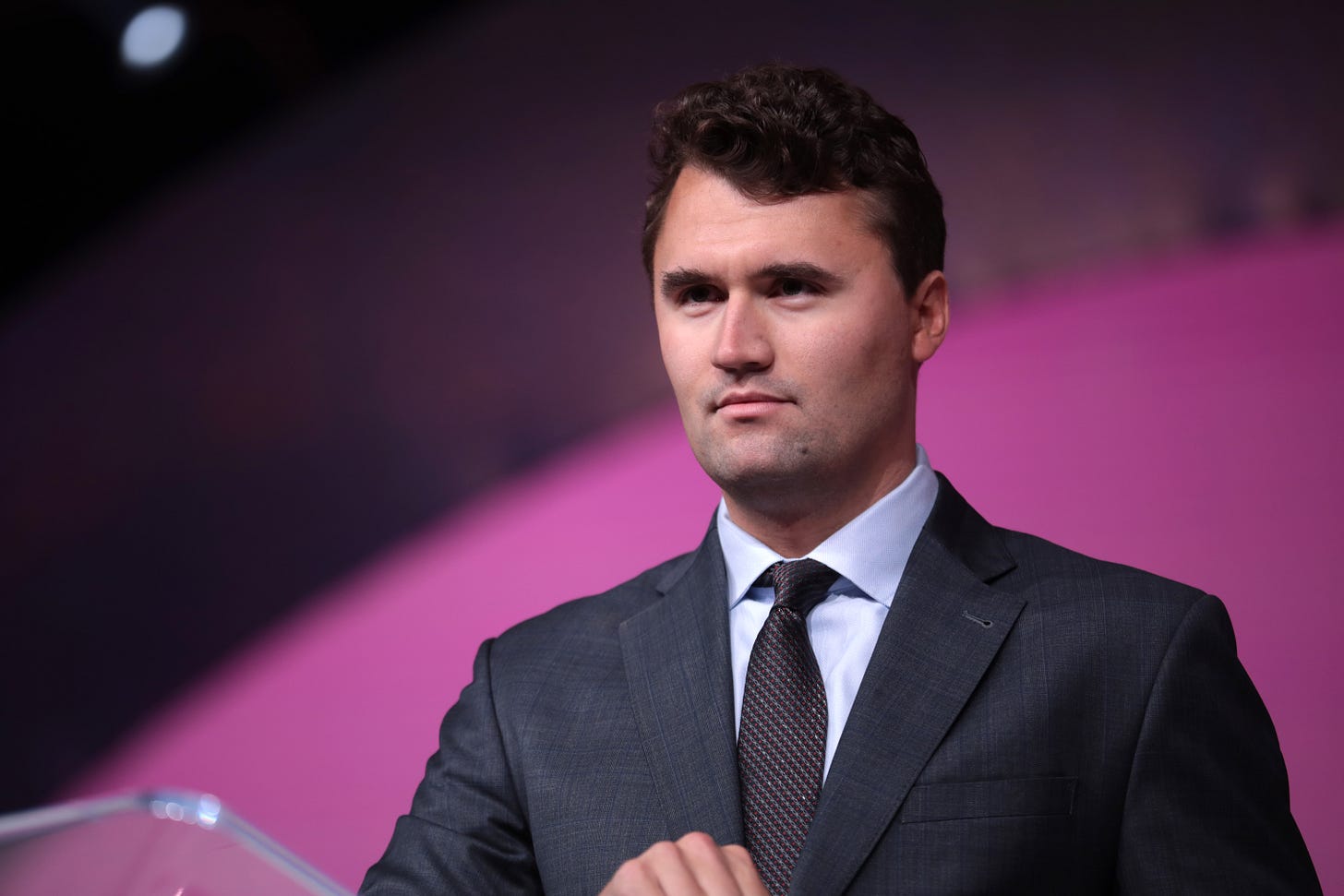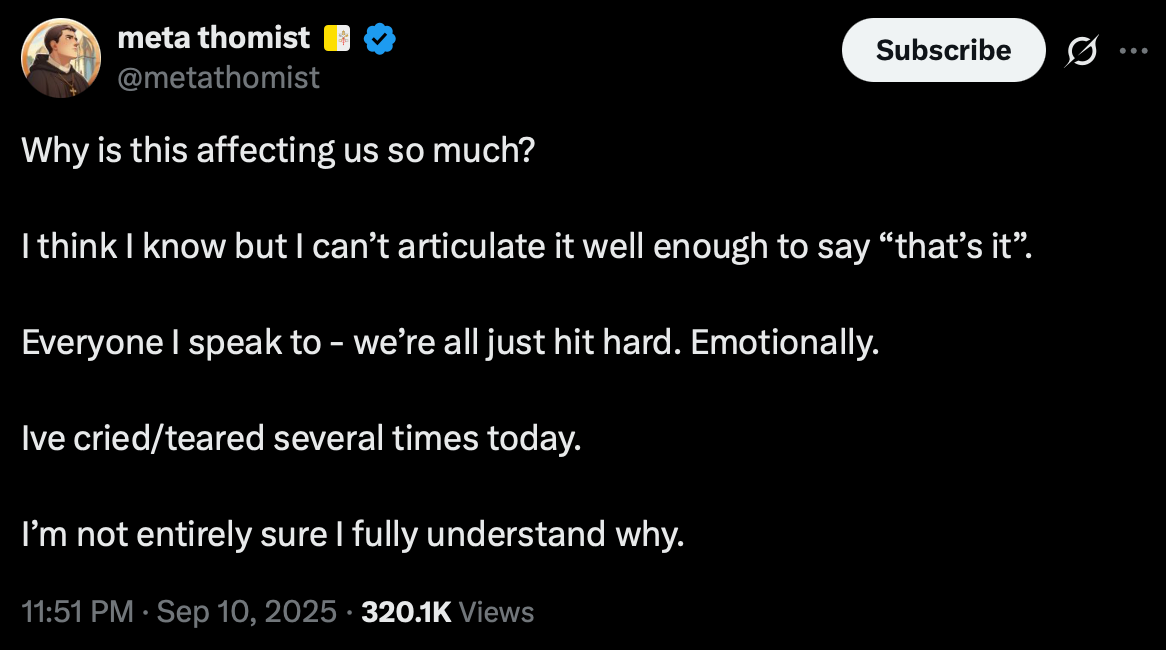Reflecting on Charlie Kirk
And why his legacy is now more important than ever
Subscribers,
I’m embarrassed that it’s been so long since I last published here. Not because I think my words carry great weight, but because you subscribed expecting content that I haven’t delivered. I want to thank everyone who has remained subscribed, and welcome to those who joined in the past few months despite my silence. I owe you all an explanation.
The truth is, six months ago I accepted a position that has limited my ability to speak as freely as I once did. I cannot share many details, except that the role is temporary and, in my view, serves a cause and agenda most of you would support.
I had been meaning to explain all of this in a brief hiatus note for weeks but never found the time.
Until Charlie Kirk was assassinated.
Charlie lived by the conviction that we should always speak the truth. My old boss Tucker Carlson used to say something similar: never be afraid to say what you think is true. I realized, through his death, that this conviction is more important than ever. I decided that I can and should continue to write here, even if my current role temporarily limits how or what I can say.
The tragedy of Charlie’s murder also led me to reflect on him, his faith, his mission, and how each of us is similarly called to fulfill a purpose in life.
I didn’t know Charlie Kirk well. But like many of you, I have heard and read from countless people—from those who knew him well to those who never even listened to him—who have all grieved his death. I count myself among them.
A few days ago, I shared my own perspective about why Charlie’s loss resonates so deeply. I want to expand on that X post here.
Charlie was always kind to me when I interacted with him. Early in my career, when I had no following and no connections, he gave me media access to his events. He had nothing to gain from helping me—he simply did.
I also met my wife through Turning Point, back in undergrad. She was starting a chapter on campus, and a mutual friend convinced me to attend the first meeting. We used to joke about needing a better “how we met” story, but now our story feels like a testament to how Charlie was able to bring likeminded people together, often in ways none of us could have predicted.
When I first heard the news that he had been shot, I was stunned. But by the time I got home Wednesday evening—and in the days since—I have grieved as if I’d lost someone I knew well. Millions of others have too. I still can’t fully explain it, except to say that perhaps it’s because Charlie wasn’t some distant public figure. He was the face of my generation that came of age in the conservative movement over the last ten years. He was our age. We grew up with him, saw him, spoke to him, and watched him succeed. He was one of us. And now he is gone.
The most devastating part of the tragedy, of course, is that he leaves behind a wife and two young children. To be taken from them in such a violent way is terrifying and unthinkable.
It’s also impossible to separate Charlie’s assassination from his Christian faith. It’s at the very heart of this tragedy, and something I have not been able to stop thinking about.
As Christians, we’re taught at a young age to be ready to die for our faith. Thousands have over the centuries. Dying for your faith as a martyr is very much the Christian way. But nothing prepares you to see it happen to someone your age, someone you knew. Charlie, the leading Christian voice for young Americans, was murdered as he professed his beliefs. There is no clearer display of evil.
Yet, that evil has been overcome by the outpouring of prayer and positivity in the aftermath of Charlie’s death—a reminder from God that good will always prevail.
What most amazes me about Charlie is how he found his calling so early in life. Most of us spend a lifetime searching for that kind of purpose. Charlie found his and pursued it to the fullest every day. Alongside his faith and his courage to share his beliefs, that sense of calling is a legacy that should challenge each of us to reflect on and live out our own.




